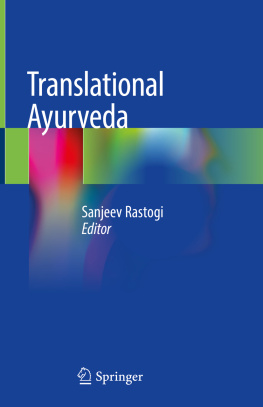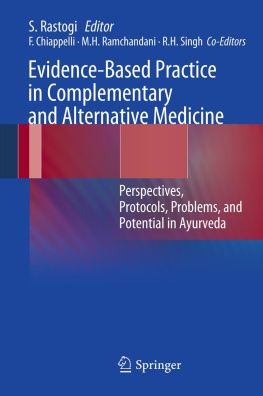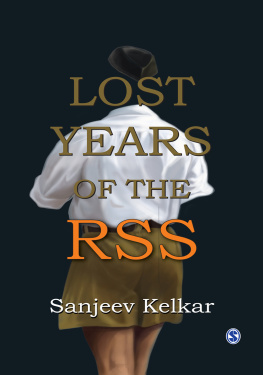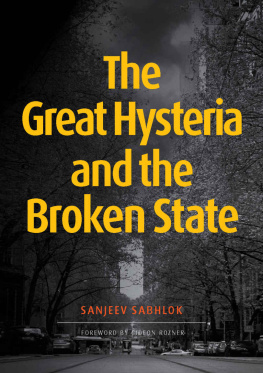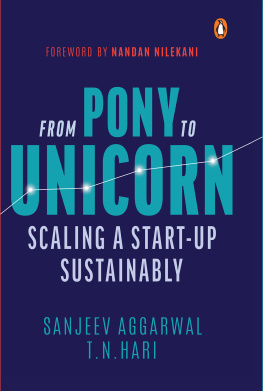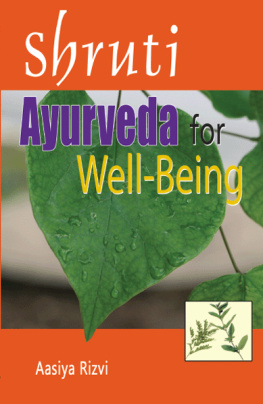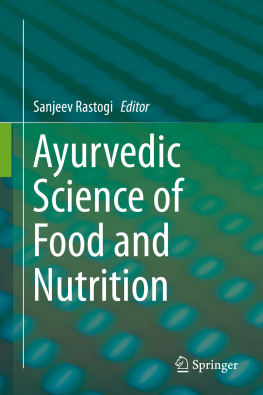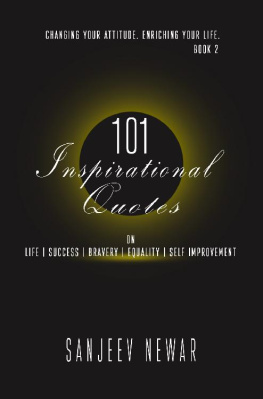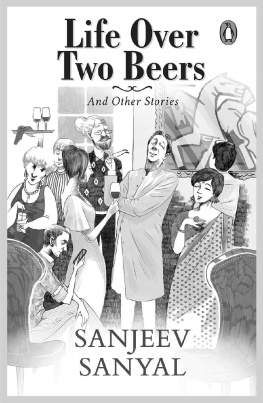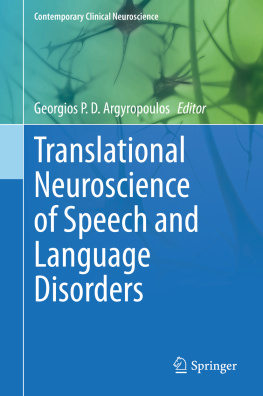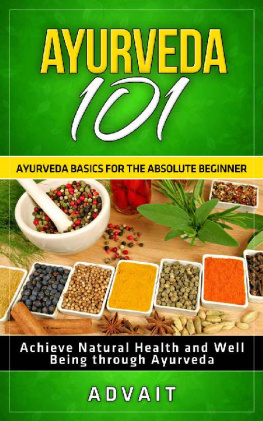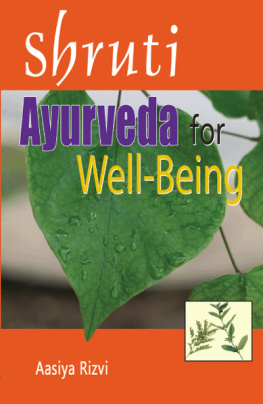Sanjeev Rastogi - Translational Ayurveda
Here you can read online Sanjeev Rastogi - Translational Ayurveda full text of the book (entire story) in english for free. Download pdf and epub, get meaning, cover and reviews about this ebook. City: Singapore, year: 2019, publisher: Springer, genre: Romance novel. Description of the work, (preface) as well as reviews are available. Best literature library LitArk.com created for fans of good reading and offers a wide selection of genres:
Romance novel
Science fiction
Adventure
Detective
Science
History
Home and family
Prose
Art
Politics
Computer
Non-fiction
Religion
Business
Children
Humor
Choose a favorite category and find really read worthwhile books. Enjoy immersion in the world of imagination, feel the emotions of the characters or learn something new for yourself, make an fascinating discovery.
- Book:Translational Ayurveda
- Author:
- Publisher:Springer
- Genre:
- Year:2019
- City:Singapore
- Rating:3 / 5
- Favourites:Add to favourites
- Your mark:
- 60
- 1
- 2
- 3
- 4
- 5
Translational Ayurveda: summary, description and annotation
We offer to read an annotation, description, summary or preface (depends on what the author of the book "Translational Ayurveda" wrote himself). If you haven't found the necessary information about the book — write in the comments, we will try to find it.
Translational Ayurveda — read online for free the complete book (whole text) full work
Below is the text of the book, divided by pages. System saving the place of the last page read, allows you to conveniently read the book "Translational Ayurveda" online for free, without having to search again every time where you left off. Put a bookmark, and you can go to the page where you finished reading at any time.
Font size:
Interval:
Bookmark:
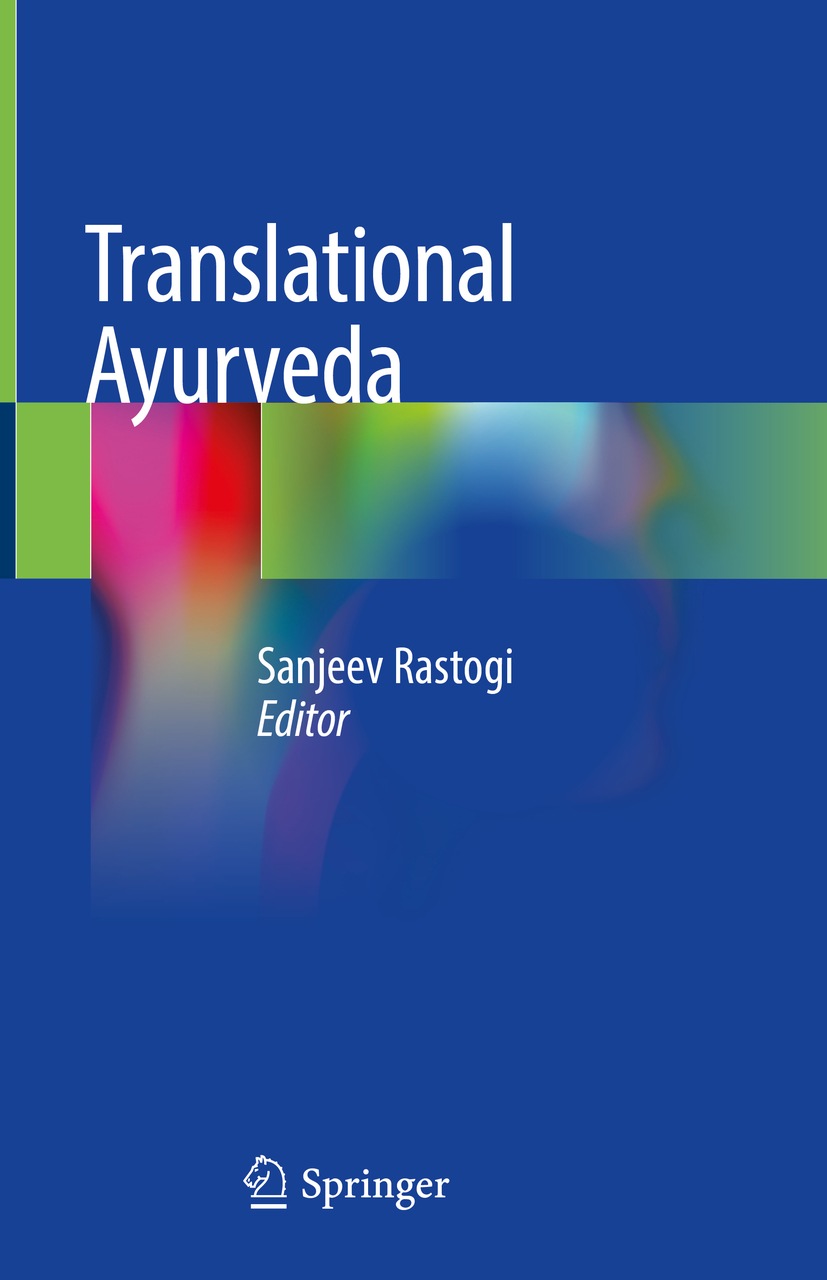

This Springer imprint is published by the registered company Springer Nature Singapore Pte Ltd.
The registered company address is: 152 Beach Road, #21-01/04 Gateway East, Singapore 189721, Singapore
Translational medicine, translational science and now translational Ayurveda sound novel and innovative, but their practice is far from new. The Ayurvedic pioneers of the nineteenth century in Bengal and Kerala, for example, were faced with the problem of supplying ready-made, traditional formulations of proven quality to large numbers of patients who had no means to make them at home; nor did the physicians have the facilities and staff to produce them. The highly successful initiative to produce and supply traditional drugs to thousands of patients on the lines of drugs in modern medicine was the brainchild of Ayurvedic pioneers who faced no little opposition from their orthodox peers. Their initiative was a huge success which opened a new chapter in Ayurvedic pharmacy. In accomplishing this unprecedented feat, the pioneers adhered strictly to the directions in ancient texts but, at the same time, adopted whatever they felt was necessary and appropriate in the industrial production of modern drugs. Authentication of batches of raw materials, fixation of processing protocol, quality control and marketing found resonance in the manufacture of Ayurvedic formulations for the first time. The novel approach combined the resources, expertise and technologies from different disciplines to enhance the reach and quality of Ayurvedic formulations, which could legitimately claim to be the harbinger of translational Ayurveda.
Translational Ayurveda is of course not limited to the production of herbal formulations. The resources including techniques which Ayurveda would summon from different disciplines to become translational would vary depending on what is sought to be made translational. To develop herbal drugs for the global market, novel instruments to determine the constitutional type or prakriti of individuals or devices to study nd in clinical practice would require in-depth collaboration with disciplines as diverse as medicinal chemistry, intellectual property, world trade, biomedical engineering and regulatory regime for instruments used in clinical practice across the world. As Ayurveda globalizes and its applications cross national and cultural frontiers, the process of translation would expand and become many-splendoured. This is inevitable as foreshadowed by the globalization of yoga.
Professor Rastogi has made a serious attempt to study translational Ayurveda and edited an interesting and enlightening volume. Divided into two parts, the first contains papers on the fundamentals and modalities of translational Ayurveda written by experts. The papers in this part deal with basic questions such as the translational potential of prakriti, translational concepts in Ayurvedic drug science and Ayurvedic Rasayana therapy for mass benefit. Part II deals with translational Ayurveda in clinical practice and includes interesting discussions on the practice of integrative dermatology over 20 years in a hospital, sleep medicine, diabetes and cancer. Fittingly it concludes with a paper on Dreaming of Health for All by Rastogi.
The book will be of interest to practitioners, investigators and friends of Ayurveda in India and foreign countries as it draws attention to an emerging frontier of Ayurveda. Professor Rastogi deserves our thanks for highlighting the translational aspect of Ayurveda which holds the key to extending the reach of Ayurvedic practice of high quality all across India and foreign countries.
Translational Ayurveda: From Book to Bedside is a documented cry of a distinct community of Ayurveda believers who want to be the judge for what their health care delivers and also wish to be judged essentially through their deliverables. There had been consistent and passionate arguments about the uniqueness of Ayurvedic fundamentals, principles, diagnostic methods, treatment approaches, procedures and formulations compared to contemporary biomedicine. Such arguments often begin in the backdrop of antiquity of Ayurveda and build up through limitations of biomedicine in terms of its limited understanding about diseases, treatment possibilities and adversities which might be an essential offshoot of a given medical intervention. These arguments also question about the reductionist approach of modern medicine dealing separately with every small section of the body and hence being unable to have a comprehensive view of the person as a whole having a disease. There had not been any doubts about the uniqueness and occasional superiority of traditional health-care wisdom over current health-care practices in a global context. Traditional health-care wisdom particularly Ayurveda and Traditional Chinese Medicine is actually the epitome of cumulated health-care knowledge which consistently kept the humanity alive much before the dawn of so-called modern medicine. Unfortunately, at the same time, many of these arguments favouring the former also look irrational, arbitrary, superficial, inconsistent and not withstandable against the word of evidence asking about the actual health-care benefits offered by such systems to the community having an access to a pluralistic health-care model with an equal opportunity to choose any system of health care for its individual needs.
Despite its literary excellence, the question of translational value of Ayurveda remains the crux. How much of this science is there in real clinical practice as a help to its believers? There are number of studies which state that Ayurvedic physicians are poorly acquainted with the diagnostic and clinical examination methods as are dictated in their own classical texts. Such fundamental-based clinical practice of Ayurveda is missing even at Ayurvedic teaching institutions and is evident by finding the absence of crucial Ayurvedic clinical information on the prescriptions generated by qualified Ayurvedic physicians working at such institutions. Unfortunately, what is taught in classrooms as vital to the clinical practice of Ayurveda is hardly seen on prescriptions generated in the hospitals. There are commendable fundamentals with high appeal when discussed in classrooms, but how they appear at clinic? Is it not strange to see that despite its much hype and galore among recent medical researchers, the concept like
Font size:
Interval:
Bookmark:
Similar books «Translational Ayurveda»
Look at similar books to Translational Ayurveda. We have selected literature similar in name and meaning in the hope of providing readers with more options to find new, interesting, not yet read works.
Discussion, reviews of the book Translational Ayurveda and just readers' own opinions. Leave your comments, write what you think about the work, its meaning or the main characters. Specify what exactly you liked and what you didn't like, and why you think so.

